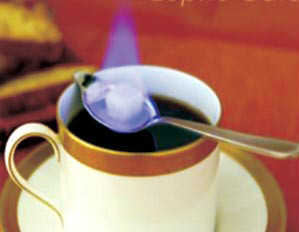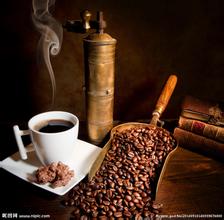An introduction to the Historical and Cultural Origin of Coffee cultivation in China
An introduction to the Historical and Cultural Origin of Coffee cultivation in China
The impact of the Ma Yuan incident made Jiasu's reputation in North Korea. This kind of fruit, which was evaluated by the son of Heaven as "swallowing hardship in order to overcome hardship", has become a symbol of loyalty and hard work for the country. All the courtiers are loyal to Jiasu, and the more bitter the better, some even call it Suwu in the grass. Zhang Heng and Beijing Fu Yun: "thousands of goods and ten thousand officials, has been done and diligent province, and Jiasu race for hardship", expressing the atmosphere of taking suffering as beauty as loyalty at that time. Therefore, in the Eastern Han Dynasty, Jiasu drank without any seasoning, pure bitterness. This method is attributed to Ma Yuantou. Ma Yuan pacifies the toe and establishes the copper pillar, so it is also known as Ma Lisu.
In the fourth year of Emperor Zhang of the Han Dynasty, Jia Kui, Ding Hong, Ban Gu and other Confucian scholars met the White Tiger View and discussed the similarities and differences of the five Classics. The discussion on the study of Confucian classics lasted for a long time, and Emperor Zhang sympathized with the Confucian scholars and specially rewarded Jiasu to refresh himself. The Confucianists were in high spirits, stayed up all night without feeling tired, and became the book "White Tiger Tongyi" on the 10th, which had a far-reaching impact on later Confucianism. Jia Kui praised Jiasu, believing that this thing had the virtue of diligence, and argued that "the south belongs to fire, fire is not dishonorable, and the earth is in the central government, so it is attached to a virtuous monarch." It is believed that Jiasu, which is produced in the south, is one of the symbols of virtue of a wise monarch. Ban Guyin "Lu's Spring and Autumn" said: "King Wen is addicted to Gladiolus. Confucius heard it, shrank it and ate it." Three years, and then win. I do know the aspirations of saints, and today Zhu Su is also. " Gladiolus is the root of Acorus calamus, which tastes bitter. Ban Gu said that Confucius deliberately ate bitterness to imitate Wen Wang Dezao. Today, people drink Zhu (Jia) Su, which is also the way of pursuing the sages, linking hardship with Confucianism. Later Confucian masters such as Ma Rong and Zheng Xuan also strongly called Mei Jiasu as an indispensable drink for reading. As the saying goes, "drinking Su is like cultivating morality" can cultivate one's character and sharpen one's mind. From then on, Jiasu was inseparable from the spirit of Confucianism.
After the Bai Hu Guan meeting, the status of Jiasu has been greatly improved. People's attention to Jiasu gradually shifted from loyalty to loyalty to the symbol of loyalty and diligence. Such as Xu Fang, a famous minister of the Imperial Dynasty: "to prevent diligence in political affairs, often drink Jiasu, stay awake for several days, there are signs, the emperor to Su minister beauty." At this time, "Su Chen" has been regarded as the laudatory name of the loyalty of his subjects. Before the Han Dynasty and Emperor Liu Zhao began to wipe out Dou's relatives, he swore with Jiasu water in his hand: "I drink this water, long and night, and never sleep. It's all a matter of state." From then on, the son of Heaven drank Jiasu and became a symbol of pro-politics. Because the emperor of Han Dynasty asked for Su water from Liang Ji, who thought he wanted to take power, he poisoned the water and killed the emperor.
In China, people like drinking coffee more and more. The "coffee culture" that follows is full of every moment of life. People are tasting coffee at home, in the office, or on various social occasions: it is gradually associated with fashion and modern life. Coffee houses everywhere have become good places for people to talk, listen to music and rest, and coffee has gradually developed into a culture. Whether it is freshly ground coffee beans or freshly brewed hot coffee, it exudes a rich aroma and makes people intoxicated. There are many ways to savor this intoxication: espresso, cappuccino, Latay, flavored coffee; they offer a variety of options for people who regularly patronize coffee shops in Beijing, Shangjiu and other big cities in China. Chinese people also gradually like to make their own coffee. Using roasted coffee beans, filter pots and filter paper to make a cup of fresh coffee also has a different taste.
As coffee is widely known as a drink with a long history, coffee is being accepted by more and more Chinese people. Some data show that China's coffee consumption is increasing year by year, and is expected to become an important coffee consumer in the world. Today, Yunnan coffee produced in China's own land, with its noble quality and low price, will promote this trend, guide this fashion, become the Chinese people's own coffee brand, and have China's own unique coffee culture.

Important Notice :
前街咖啡 FrontStreet Coffee has moved to new addredd:
FrontStreet Coffee Address: 315,Donghua East Road,GuangZhou
Tel:020 38364473
- Prev

Market Analysis and Development Prospect of Fine Coffee in China
China Fine Coffee Market Analysis and Development Prospects With coffee, a drink with a long history, becoming widely known, coffee is being accepted by more and more Chinese people. Statistics show that China's coffee consumption is rising year by year, and is expected to become an important coffee consumer in the world. Now, Yunnan coffee produced on China's own soil, with its noble quality, low cost
- Next

Local New Oriental branches are helping entrepreneurs to seize the coffee market.
A professional barista of Jiangxi New Oriental Cuisine Institute said that in the coffee industry, it is easy to say it is easy to do well, and it is not easy to say it is not easy. Many people enter the industry and want a piece of the pie, but some people do not understand coffee and think it is very simple. In fact, for those who have known it deeply, they know that it is not simple. It can be said that everyone rushes out with the same coffee beans and the same tools.
Related
- Workers collapse! Lucky suspects that it will introduce freshly cut fruits?!
- 1-point subsidy recipients wear thousand-yuan watches?! Local response: For low-income households
- Can lightly roasted coffee beans be used to extract espresso? How finely should you grind high-quality coffee beans to make Italian latte?
- What is the difference between the world's top rose summer coffee and Yejia Shefi? What are the flavor characteristics of Yega Shefi coffee and Panama rose summer?
- The ceremony is full! Starbucks starts to cut the ribbon at a complimentary coffee station?!
- A whole Michelin meal?! Lucky launches the new "Small Butter Apple Crispy Latte"
- Three tips for adjusting espresso on rainy days! Quickly find the right water temperature, powder, and grinding ratio for espresso!
- How much hot water does it take to brew hanging ear coffee? How does it taste best? Can hot water from the water dispenser be used to make ear drip coffee?
- What grade does Jamaica Blue Mountain No. 1 coffee belong to and how to drink it better? What is the highest grade of Blue Mountain coffee for coffee aristocrats?
- What are the flavor characteristics of the world-famous coffee Blue Mountain No. 1 Golden Mantelin? What are the characteristics of deep-roasted bitter coffee?

